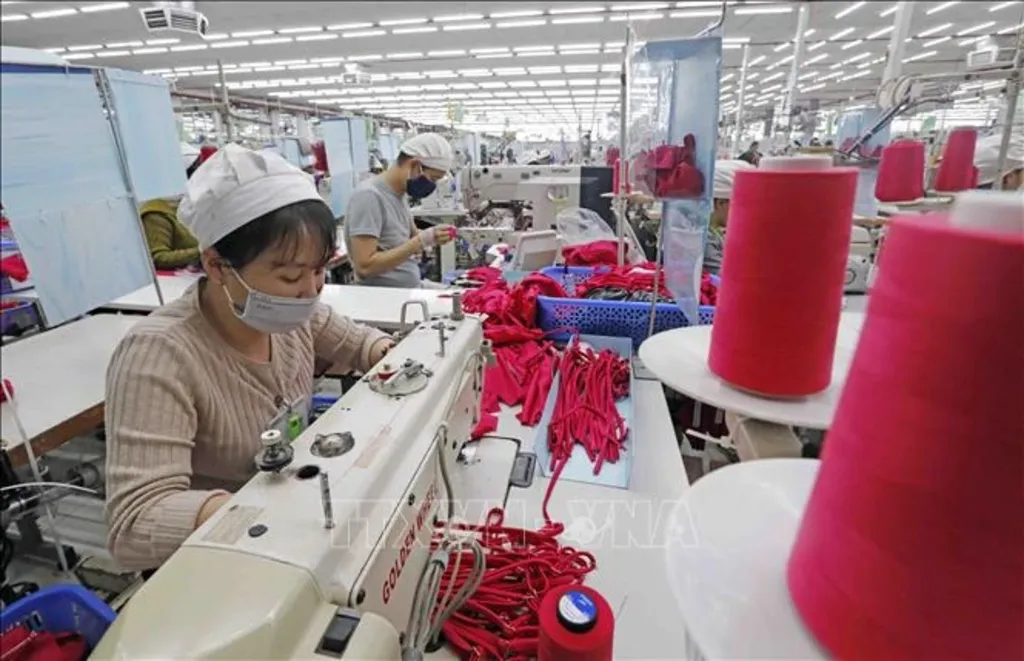 |
| Production at SCAVI Hue, a French-invested garment company in Phong Dien Industrial Park, Phong Dien district, the central province of Thua Thien-Hue.__Photo: VNA |
The European Chamber of Commerce in Vietnam (EuroCham) on July 15 released its Business Confidence Index (BCI) report for the second quarter of 2024, which reveals a marginal decline from 52.8 in Q1 to 51.3 in Q2, underscoring the necessity for ongoing policy adjustments to maintain momentum.
Chairman of EuroCham Vietnam Dominik Meichle held that Vietnam's economic potential is undeniable, and the European business community remains confident in its long-term growth.
While the survey points to areas for improvement, EuroCham believes that working together to address administrative and regulatory hurdles can create a more efficient and attractive business environment that benefits both the European and Vietnamese business communities, he said.
Surveyed businesses pointed to five areas that Vietnam should focus on to boost FDI in Vietnam, including streamlining administrative and procedural processes and enhancing clarity and precision in laws to reduce arbitrary interpretation. They also pointed to the need for Vietnam to develop core infrastructure and simplify visa and work permit procedures for foreign experts.
Thue Quist Thomasen, CEO of Decision Lab said that while 68 percent of respondents reported neutral to positive current conditions, there is a slight increase in short-term caution, which needs to be addressed to continue the positive trend from the previous quarters. However, the strong 6.42 percent GDP growth in the first half of 2024 and nearly 70 percent expressing long-term optimism indicate robust underlying confidence that may materialize in future readings, he added.
Meanwhile, the survey showed that carbon neutrality progress is key to attracting quality European FDI, while revealing a growing commitment to sustainability among European businesses in Vietnam, with 7 percent having already achieved carbon neutrality.
On a positive note, the recent signing of the Direct Power Purchase Agreement (DPPA) decree offers a ray of hope. Swift and successful implementation could address some of these challenges, particularly by improving access to clean energy sources and potentially providing better sustainability incentives, it said.
The quarterly BCI, which is conducted by Decision Lab, serves as a vital tool for understanding the perceptions of European and Europe-related companies and investors in the Vietnamese market. Conducted since 2011, the BCI collects feedback from EuroCham Vietnam's extensive network of 1,400 members across a diverse range of sectors. This survey provides valuable insights into the current business landscape in Vietnam and offers a glimpse into future expectations.__(VNA/VLLF)









